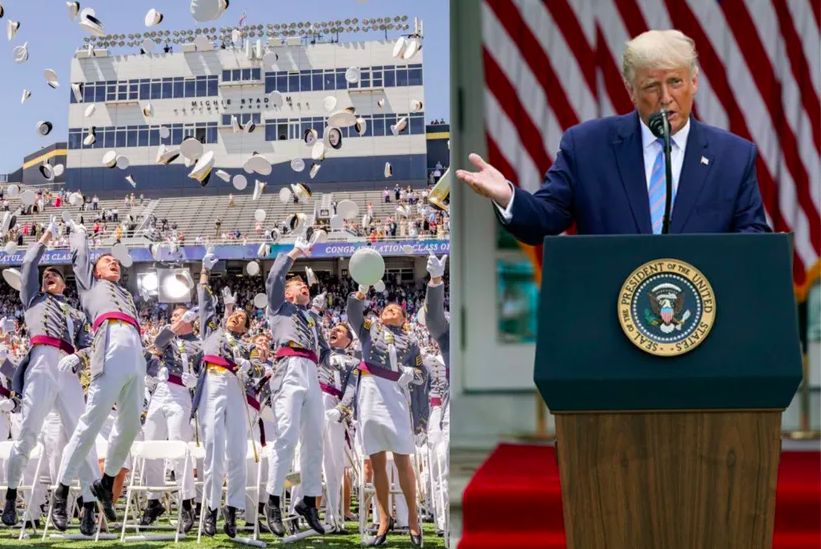DOE Initiates Investigation into Maine Following Governor’s Defiance of Federal Directive on Women’s Sports
In a decisive move underscoring the federal government’s commitment to preserving the integrity of women’s athletics, the U.S. Department of Education (DOE) has launched an investigation into the state of Maine’s compliance with Title IX regulations. This action comes mere hours after a public confrontation between President Donald Trump and Maine Governor Janet Mills regarding the participation of transgender athletes in female sports.
The controversy centers on President Trump’s executive order, issued on February 5, 2025, which mandates that only biological females are permitted to compete in women’s sports at educational institutions receiving federal funding. The order aims to ensure fairness and equal opportunities for female athletes by preventing biological males from participating in women’s competitions.
During a National Governors Association meeting at the White House, President Trump directly addressed Governor Mills, inquiring whether Maine intended to comply with the executive order. Governor Mills responded assertively, stating that Maine would adhere to its own state laws, which currently allow transgender athletes to compete in accordance with their gender identity. This stance places Maine in direct opposition to the federal directive.

In response to Governor Mills’ defiance, President Trump warned that non-compliance could result in the withdrawal of federal education funds from Maine. He emphasized the administration’s position that allowing biological males to compete in women’s sports undermines the principles of fairness and equal competition that Title IX was designed to protect.hhs.gov
Subsequently, the DOE’s Office for Civil Rights (OCR) announced an investigation into the Maine Department of Education and specifically into Maine School Administrative District #51. The probe aims to determine whether the state’s policies violate Title IX provisions by permitting male athletes to participate in female sports and by denying female athletes access to sex-specific facilities. The OCR’s letter to Maine officials highlighted concerns that such practices could constitute discrimination based on sex, thereby infringing upon federal civil rights laws.

Governor Mills has remained steadfast in her position, asserting that Maine’s policies are aligned with the state’s Human Rights Act, which prohibits discrimination based on gender identity. She has vowed to challenge any federal actions that threaten to withhold funding, stating that the state will take all necessary legal measures to protect the rights of its students and uphold its anti-discrimination laws.
This confrontation between state and federal authorities brings to the forefront the ongoing national debate over the inclusion of transgender athletes in women’s sports. Proponents of the executive order argue that allowing biological males to compete in female categories compromises the competitive balance and safety in women’s athletics. They contend that physiological differences, such as muscle mass and bone density, provide inherent advantages that can overshadow the achievements of biological female athletes.
Opponents, however, view the executive order as discriminatory, arguing that it infringes upon the rights of transgender individuals to participate fully in society, including in athletic endeavors. They assert that inclusive policies foster diversity and acceptance, and that sports organizations can implement guidelines to ensure fair competition without excluding transgender athletes.
The legal battle that is poised to ensue between the federal government and the state of Maine is likely to set a significant precedent. At the heart of the dispute is the interpretation of Title IX, a federal law enacted in 1972 to prevent sex-based discrimination in educational programs and activities. The current administration interprets the law as necessitating the exclusion of biological males from female sports to maintain fairness, while Maine’s leadership interprets it as requiring inclusivity for transgender individuals.
As this situation unfolds, educational institutions across the nation are closely monitoring the developments. The outcome of this dispute may compel schools and colleges to reevaluate their policies regarding athletic participation and could influence future legislation at both state and federal levels.
In the interim, the DOE has indicated that it will proceed with its investigation expeditiously. The findings could have substantial implications not only for Maine but also for other states with similar policies. The administration has made it clear that adherence to federal guidelines is a prerequisite for the receipt of federal education funds, and deviations may result in significant financial repercussions.
This case exemplifies the broader cultural and political discourse surrounding gender identity, states’ rights, and the role of federal oversight in educational affairs. The resolution of this conflict will likely resonate beyond the realm of sports, influencing public policy and societal attitudes toward gender and equality in the years to come.





